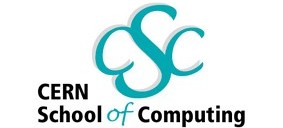iCSC2010
System Monitoring
Details of all lectures
SNMP for
monitoring and operating devices
A few questions addressed in
the lecture
|
|
|
Tuesday 9 March |
|
|
09:00 - 09:55 |
Lecture 6 |
SNMP for
monitoring and operating devices |
Uwe Westerhof |
|
Description
This lecture will give an overview of the Simple Network
Management Protocol (SNMP) from a users point of view. It
will provide the basic knowledge to use SNMP
productively.
The lecture will explain the concepts of SNMP including
MIB definition files, the
communication protocol and security aspects.
At the end, examples will be given showing the
management of
different hardware components via SNMP.
|
|
Audience
This lecture targets anyone interested in monitoring and
controlling network attached hardware, like switches,
printers, power supplies or servers.
|
Pre-requisite
This lecture can be followed by anyone without requiring
special knowledge in network management or network
technologies.
|
Series:
Advanced Tools for system data collection:
Lecture:
Logs in software: How to record the what, the when and the
who
A few questions addressed in
the lecture
|
|
|
Tuesday 9 March |
|
|
10:30 - 11:25 |
Lecture 7 |
Logs in software:
How to record the what, the when and the
who |
Luis Muñoz Mejías
|
|
Description
In this part we'll
highlight the relevance of having good quality logs that are
easy to understand by both humans and machines. We'll
describe the properties good logs must have (relevant
contents, unambiguous timestamping, easy classification,
integrity...), and the existing tools designed to meet these
requirements, with examples for both developers (what and
how to log) and system administrators (what to do with those
logs). Real-world examples of good and bad practices will be
shown, together with some ideas for improvement.
|
|
Audience
Software
developers and, perhaps, system administrators.
|
|
Pre-requisite
Understanding of UNIX
systems. Programming experience with C/C++/Perl/Python/Java
will help.
|
Series:
Advanced tools for system data collection:
Lecture:
Systemtap - Tapping the Linux Kernel to Find out What Your
Machine is Really Doing
A few questions addressed in
the lecture
|
|
|
Tuesday 9 March |
|
|
11:35 - 12:25 |
Lecture 8 |
Systemtap - Tapping the Linux Kernel to Find out
What Your Machine is Really Doing |
Malte Nuhn |
|
Description
This lecture introduces Systemtap, a free software (GPL)
infrastructure to simplify the gathering of information
about the running Linux system.
The lecture's first part points out in which situations
administrators and developers are often lacking information
when diagnosing performance or functional problems.
A short overview about the Linux Kernel is given, enabling
the listener to get a feeling, which information is
accessible and might be interesting in his specific
use-case.
Next, a brief overview of Systemtap's inner workings is
given.
Therefore, common probing techniques, their prerequisites,
possible risks and downsides are presented. This part ends
by showing how these techniques are accessible in Systemtap
and what is needed to get them to run.
The lecture's last part introduces Systemtap's scripting
language. It explains a couple of commonly used scripts and
shows how the listener can practically introduce them to his
own logging and monitoring environment.
|
|
Audience
This lecture targets developers and
administrators who are running/ developing software on Linux
servers. This lecture will introduce a powerful toolchain,
allowing the listener to finally get a grip on his Linux
server.
|
Pre-requisite
To draw maximum benefits
of the lecture, the attendant should preferably have some
experience in Linux System administration and/or
programming. This lecture can be reasonably followed without
having attended the first lecture of this series.
|
|
|

